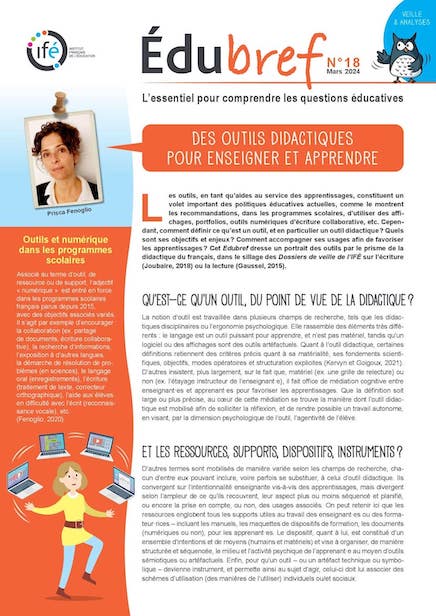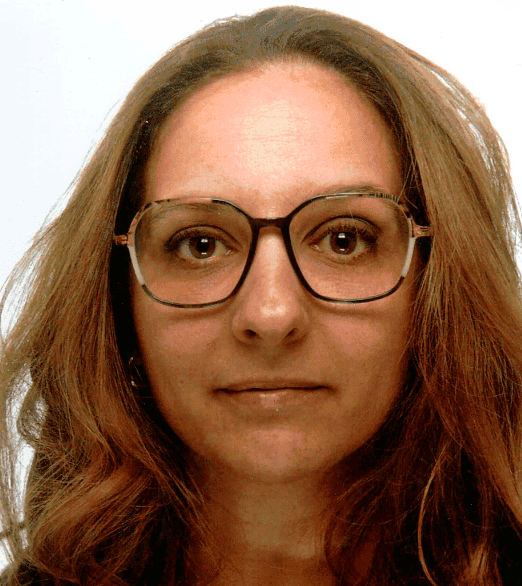L'influence des politiques éducatives européennes et nationales dans la construction du discours scolaire : le cas des manuels scolaires traitant le fait religieux dans l'enseignement primaire en Grèce (1981-2006)
Auteur(s) : KARACHONTZITI Eleni
Date de soutenance : 2015
Thèse délivrée par : Université Paris 8
Section(s) CNU : section 70 : Sciences de l'éducation
Sous la direction de : Georgios STAMELOS & Saeed PAIVANDI
Jury de thèse : Stathis, Balias ; Pantelis, Kiprianos, Pantelis ; Pachod, André ; Rochex, Jean-Yves ; Paivandi, Saeed ; Stamelos, Georgios (rapporteur hors du jury : Chalmel, Loïc)
"Le discours scolaire est au cœur de cette thèse de doctorat. Traditionnellement, l’école grecque véhicule un discours grec chrétien à travers les manuels scolaires traitant le fait religieux. Ceci renvoie à la construction de l’identité grecque dont la religion orthodoxe est partie intégrante. En 2003, l’État grec reçoit une aide financière européenne pour renouveler son matériel didactique. Cependant, cette aide est suivie par le respect des règles financières européennes ainsi que de l’obligation de respecter les priorités des politiques européennes sur certains sujets. Une de ces priorités est la promotion de la citoyenneté européenne d’une manière plus solide. Ainsi, il révise sa pratique et il élargit ses objectifs. Cette recherche a pour but d'étudier les manuels scolaires traitant du fait religieux en Grèce. En ce sens, on étudie l’évolution de l’enseignement religieux comme partie intégrante de l’éducation à la citoyenneté. Cette dernière encouragée par les institutions éducatives européennes, vise la transition du modèle représentatif du citoyen au participatif. Ces évolutions ont des effets dans la construction du discours scolaire et sur la façon de percevoir le fait religieux. La recherche est réalisée autour de l’analyse du contenu des manuels et des entretiens avec les acteurs de leur rédaction (auteurs, évaluateurs, responsables de l’application de la politique éducative).L’analyse des données met en évidence que les transformations que le discours scolaire subit sous le poids des instances communautaires ne changent pas son orientation. Il s’agit plutôt d’une adaptation pour qu’il corresponde au nouveau paradigme. Il est alors le fruit de l’interaction des politiques éducatives européennes et des politiques éducatives grecques."
abstract
"School discourse is at the centre of this Phd dissertation. Traditionally, greek schools promote the greek – Christian discourse throughout the content of school textbooks treating the religious phenomenon. This fact is what brings us in mind the structure of the greek identity, to the forming of which orthodoxy indisputably plays a major role. In the year 2003 the Greek state accepts a European financial help in order to refresh the school textbooks. However, this specific help comes with the obligation to respect not only the european financial rules, but the priorities in certain subjects as they are set by the european policies as well. One of these priorities is the construction of the European citizenship in a more solid way. Furthermore, it reconsiders its practices and sets the goals concerning the building of the European citizen. Our research aims at a pluralistic study of the greek textbooks which form the religious phenomenon in the primary education. Towards this direction the object of our study is the evolution of the religious education which is included in the school program of the Education of Democratic Citizenchip. One last thing that is promoted by the European institutions targets at the transition from the representative to the participatory citizenship model. These developments result in the construction of the school discourse and in the effective treatment of the religious phenomenon. The research is carried out by the means of the analysis of the content of school textbooks, combined with the interviews of the actors (authors, evaluators, responsibles of application of education policy).The data analysis brings into light that the changes to which school discourse is submitted, forced by the European checks, do not bring about changes to its orientation. It is a matter of transformation in order to live up to the change of example. School discourse which is promoted by the school textbooks is a product of the European and greek educational policies."
URL : http://www.theses.fr/2015PA080089
mot(s) clé(s) : éducation à la citoyenneté, politiques éducatives, sociologie de l'éducation














